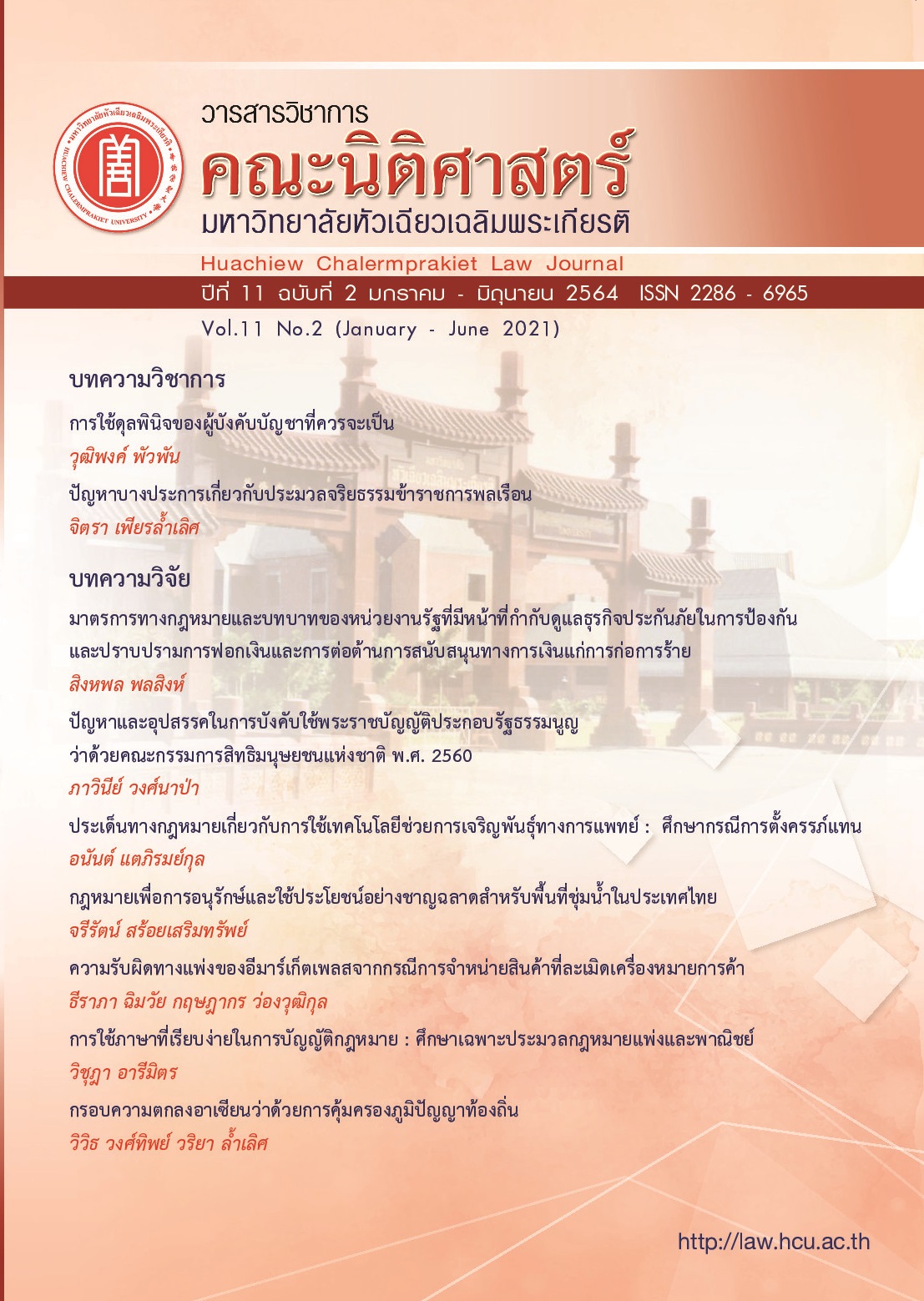Legal Issues Concerning Assisted Reproductive Technology : A Case Study on Surrogacy Arrangements
Abstract
This thesis aims to study some key legal issues dealing with the protection of children from illegal surrogacy arrangement under Assisted Reproductive technology Act, B.E.2558. In this regard, the best interest of the child principle must be protected by law and all stakeholders must perform their duties based on this principle in good faith.
The method of study is using documentary research methodology, many legal textbooks, medical textbooks, articles, research papers published in various journals, online databases, websites.
The research outcome of this thesis does confirm that the rights of the child born from assisted reproductive technology should be equal to the child born from pregnancy. Consequently, surrogacy means pregnancy through any assisted reproductive technology that the women who gets pregnant agrees to a legitimate spouse or unlicensed spouse in writing before her pregnancy and a baby born from such technology must be a legitimate child of the said legitimate spouse or unlicensed spouse and it is prohibited to perform a surrogacy for commercial purposes or for seeking unlawful benefits. However, the spouse and surrogate who violate Section 22 of the said Act should not be punished because of the best interest of the child instead.
Downloads
Published
How to Cite
Issue
Section
License
บทความหรือข้อความคิดเห็นใด ๆ ที่ปรากฏในวารสารฉบับนี้เป็นวรรณกรรมของผู้เขียนโดยเฉพาะ คณะนิติศาสตร์มหาวิทยาลัยหัวเฉียวเฉลิมพระเกียรติ และกองบรรณาธิการไม่มีส่วนรับผิดชอบหรือไม่จำเป็นต้องเห็นด้วยกับข้อคิดเห็นนั้น แต่ประการใด








